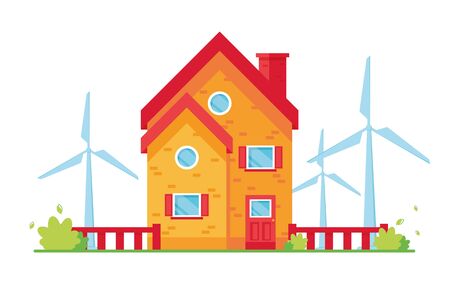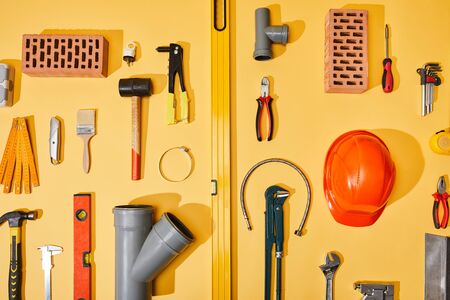Overview of Legal Responsibilities
In England, landlords who let out residential properties have a legal duty to ensure the safety of their tenants, particularly regarding electrical and gas installations. These responsibilities are underpinned by key legislation such as the Electrical Safety Standards in the Private Rented Sector (England) Regulations 2020 and the Gas Safety (Installation and Use) Regulations 1998. Landlords must provide evidence that all electrical systems and gas appliances are maintained in safe working order. This includes arranging regular inspections and ensuring any required repairs or upgrades are carried out by qualified professionals. Failure to comply with these regulations can result in significant penalties, invalidated insurance, and risks to tenant safety. Understanding these core obligations is essential for anyone managing buy-to-let properties in England, as they form the foundation for providing a secure and legally compliant rental home.
2. Electrical Installation Condition Reports (EICR)
Electrical safety is a top priority for buy-to-let properties in England, and one of the main legal requirements is obtaining a valid Electrical Installation Condition Report (EICR). An EICR is an official document produced following an assessment by a qualified electrician, confirming that all fixed electrical installations in a rental property are safe for continued use.
Understanding EICR Requirements
Landlords must ensure an EICR is carried out at least every five years or more frequently if recommended by the previous report. The assessment covers the entire electrical system, including wiring, sockets, light fittings, consumer units (fuse boxes), and any permanently connected equipment. From 1 April 2021, it has been mandatory for all existing tenancies in England to have a valid EICR.
Recommended Frequency for Inspections
| Property Type | Frequency of EICR |
|---|---|
| Private Rented Homes (Buy-to-Let) | Every 5 years or on change of tenancy |
| Houses in Multiple Occupation (HMOs) | Every 5 years or as advised by electrician |
| New Builds/Full Rewires | First inspection after 5 years |
Typical Issues Found During Inspections
- Outdated Wiring: Old rubber or fabric-insulated cables that do not meet modern standards.
- Lack of RCD Protection: Absence of Residual Current Devices (RCDs) on circuits increases risk of electric shock.
- Damaged Sockets and Switches: Cracked or broken faceplates pose safety hazards.
- Poor Earthing and Bonding: Inadequate earthing can lead to electric shocks during faults.
- Overloaded Circuits: Too many appliances on one circuit may cause overheating and fire risks.
An up-to-date EICR helps landlords demonstrate their commitment to tenant safety and compliance with UK law. Addressing any issues identified in the report promptly not only protects tenants but also safeguards your property investment against potential hazards and costly repairs down the line.

3. Gas Safety Certification
For landlords letting properties in England, it is a legal requirement to ensure that all gas appliances, fittings, and flues are safe for tenants. This is achieved through mandatory annual Gas Safety Checks carried out by a qualified Gas Safe registered engineer. During the inspection, the engineer will thoroughly examine all gas appliances such as boilers, cookers, and fires for proper functioning and check for any leaks or faults. The resulting document is known as a Gas Safety Certificate (often referred to as a CP12 certificate), which outlines details of the checks conducted, any issues identified, and confirmation that the property meets current safety regulations.
Landlords must provide a copy of the latest Gas Safety Certificate to their tenants within 28 days of the check or before new tenants move in. Additionally, a copy should be retained for at least two years as proof of compliance. To comply with legal requirements, the certificate should be displayed clearly within the property—commonly in communal areas—or given directly to each tenant if displaying is not practical. Adhering to these regulations not only protects tenants but also helps landlords avoid hefty fines and legal complications associated with non-compliance.
4. Compliance and Documentation
Ensuring compliance with electrical and gas safety standards in buy-to-let properties across England is not just about carrying out the necessary checks; it’s equally crucial to maintain accurate records and provide the appropriate documentation. This not only demonstrates your commitment to tenant safety but also serves as vital legal protection should any disputes or inspections arise.
Maintaining Up-to-Date Records
Landlords are legally required to keep comprehensive records of all electrical and gas safety inspections and works carried out. It’s good practice to organise these documents systematically, ensuring they can be produced quickly if requested by tenants, local authorities, or letting agents. An up-to-date logbook or digital folder containing certificates, invoices, and inspection reports will make this process much smoother.
Providing Certificates to Tenants
The law in England mandates that tenants must receive copies of both the Electrical Installation Condition Report (EICR) and the Gas Safety Certificate:
| Document | When to Provide | To Whom |
|---|---|---|
| EICR (Electrical) | Before move-in, or within 28 days of inspection for existing tenants | New & Existing Tenants |
| Gas Safety Certificate | Before move-in, and within 28 days of each annual check | New & Existing Tenants |
This transparency reassures tenants that their home is safe while also fulfilling your legal obligations as a landlord.
The Importance of Documentation for Legal Protection
Proper documentation acts as your first line of defence if you ever face a complaint, insurance claim, or prosecution. In cases involving property damage or injury resulting from faulty electrics or gas appliances, demonstrating that you followed all legal requirements—supported by clear paperwork—can be decisive in protecting yourself from liability. Regularly review expiry dates for certificates and schedule reminders so renewals are never missed. Remember, keeping everything documented isn’t just about ticking boxes; it’s an essential part of responsible and lawful property management in England.
5. Common Safety Hazards and Preventative Measures
When it comes to buy-to-let properties in England, landlords must stay vigilant about both electrical and gas safety hazards, regardless of whether the property is a classic Victorian terrace or a modern flat. Understanding the typical risks associated with older and newer buildings is essential for maintaining compliance with legal standards and ensuring tenant safety.
Electrical Hazards in Older Properties
Older homes often feature outdated wiring, worn sockets, and fuse boxes that may not meet current regulations. Issues such as damaged insulation, exposed wires, or overloaded circuits are common culprits for electrical fires. Periodic inspections by a qualified electrician can spot these risks early. Upgrading consumer units to modern RCD-protected boards and replacing old wiring helps prevent accidents and reduces energy waste.
Gas Risks in Both New and Old Homes
Faulty boilers, poorly maintained gas appliances, and blocked flues are key sources of carbon monoxide leaks—a silent but deadly hazard. In period properties, aging pipework can also present gas leak risks. For newer homes, improper installation of modern appliances may still pose safety concerns if not carried out by Gas Safe registered engineers. Annual gas safety checks are a legal requirement and a practical step to keep everyone protected.
Preventative Measures for Ongoing Safety
- Regular Inspections: Schedule annual EICRs (Electrical Installation Condition Reports) and gas safety checks by certified professionals.
- Install Detectors: Fit smoke alarms on every floor and carbon monoxide detectors near gas appliances.
- Upgrade Where Needed: Replace aging electrical systems and inefficient boilers to enhance safety and efficiency.
- Educate Tenants: Provide clear instructions on using appliances safely and reporting faults promptly.
Energy Efficiency as Part of Safety
A well-maintained property is not just safer—it’s more energy-efficient too. Simple steps like insulating pipes, fitting LED lighting, and installing programmable thermostats can lower running costs for both landlords and tenants while supporting a safer living environment. Prioritising regular maintenance ensures that your buy-to-let investment remains compliant, cost-effective, and above all safe for everyone involved.
6. Penalties for Non-Compliance
Failing to meet electrical and gas safety standards in your buy-to-let property can result in serious consequences for landlords in England. Local authorities have the power to issue significant fines, with penalties for breaches of electrical safety regulations reaching up to £30,000 per offence. For gas safety, failing to provide a valid Gas Safety Certificate can also lead to hefty fines and, in severe cases, criminal prosecution or even imprisonment if tenants are put at risk.
Enforcement Actions
Councils regularly carry out spot checks and inspections to ensure landlords are compliant. If a breach is discovered, enforcement notices may be served, requiring immediate remedial action. Persistent offenders could face banning orders, preventing them from letting properties altogether. It’s also important to remember that non-compliance can affect your ability to serve Section 21 notices, making it harder to regain possession of your property.
Common Pitfalls Leading to Breaches
- Forgetting annual gas safety checks or not keeping records for at least two years.
- Not providing tenants with up-to-date Gas Safety Certificates before they move in.
- Failing to arrange an Electrical Installation Condition Report (EICR) every five years or neglecting required repairs noted in the report.
- Using unregistered engineers for gas or electrical work instead of certified professionals (Gas Safe Register or NICEIC).
How to Avoid Non-Compliance
To stay compliant and avoid costly penalties, keep a clear schedule for all inspections and certification renewals. Always use qualified tradespeople, maintain thorough records of all safety certificates and reports, and provide your tenants with copies as required by law. Staying proactive with maintenance not only ensures legal compliance but also keeps your tenants safe and helps you run your rental business smoothly.


